-
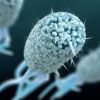 +22 +1
+22 +1Superbug fight 'needs farmers to reduce antibiotic use'
Health and animal welfare campaigners concerned about the spread of superbugs in humans are calling for a ban on the overuse of antibiotics in farm animals. They say routinely using antibiotics in livestock can lead to bacteria becoming resistant and such 'superbugs' could spread to humans.
-
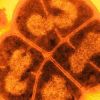 +2 +1
+2 +1Microbes may have survived for millions of years beneath the Martian surface
Ancient bacteria might be sleeping beneath the surface of Mars, where it has been shielded from the harsh radiation of space for millions of years, according to new research.
-
 +14 +1
+14 +1The Viruses That Fight Disease - Weizmann Wonder Wander
The myriads of microbes in our gut, collectively termed the microbiome, are considered important to our health, but they can also harbor bacteria that contribute to inflammatory bowel disease or other disorders. Currently, however, it is impossible to target such disease-contributing bacteria without harming the surrounding beneficial microbes.
-
 +20 +1
+20 +1Early Exposure to Antibiotics Can Cause Permanent Asthma and Allergies
Early exposure to antibiotics kills healthy bacteria in the digestive tract and can cause asthma and allergies, a new study demonstrates. The study, published in Mucosal Immunology, has provided the strongest evidence so far that the long-observed connection between antibiotic exposure in early childhood and later development of asthma and allergies is causal.
-
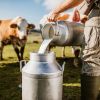 +15 +1
+15 +1Ancient Europeans were lactose intolerant. They drank milk anyway, study finds.
Despite digestive problems, ancient Europeans drank milk for millennia, the study found, casting doubt on theories on how humans evolved to tolerate it.
-
 +4 +1
+4 +1Plastic-munching superworms offer hope for recycling
The key to transforming recycling could lie in the gut of so-called superworms, researchers say.
-
 +8 +1
+8 +1Biotech firm electrocutes soil so bacteria can eat ‘forever chemicals’
A biotech firm is trialling the removal of PFAS “forever chemicals” from soil at a test site in Wisconsin by injecting chemical-eating bacteria and electrocuting the ground.
-
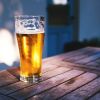 +12 +1
+12 +1Lager Beer Significantly Increases the Number of Health-Promoting Bacteria in the gut Microbiome of men
Lisbon (Portugal) Diet has a strong influence on the intestinal flora and thus also on human health. A study recently showed that a low-fat, vegan diet leads to more healthy intestinal bacteria and thus makes it easier to lose weight. In a pilot study, scientists at the Universidade Nova de Lisboa have now investigated whether and how lager beer affects the intestinal microbiome.
-
 +25 +1
+25 +1Thousands of intestinal viruses have now been mapped. And they can be used to fight antibiotic resistance
A new method developed at the University of Copenhagen has been used to identify more than 1,000 bactericidal viruses in the human intestines. The researchers believe the discovery may help fight antibiotic resistance.
-
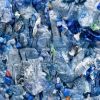 +17 +1
+17 +1A novel plastic-eating enzyme may solve our plastic woes once and for all
Plastic pollution is everywhere. It's showing up as microplastics that contaminate nearly everything and even in the stomachs of dead whales. This is because a lot of plastic is simply not biodegradable and has a very long lifespan.
-
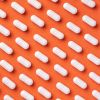 +19 +1
+19 +1Researchers create bacteria that could protect your gut from antibiotics
In 1928, Scottish microbiologist Alexander Fleming discovered what we know today as penicillin. Fleming’s work and that of his successors would go on to forever change how we treat bacterial infections. And to this day, antibiotics are one of the most powerful tools we have to protect people from a host of harmful bacteria.
-
 +14 +1
+14 +1Wearing shoes in the house is just plain gross. The verdict from scientists who study indoor contaminants
It is best to leave your filth outside the door.
-
 +18 +1
+18 +1Pollution breakthrough as new enzyme helps ‘eat’ plastic used in drinks bottles
A new breakthrough could offer hope in the battle against plastic pollution - an enzyme which ‘eats’ plastic and could help to break down single-use drinks bottles. More than 400 million tons of plastic waste are produced each year, the overwhelming majority of which ends up in landfills, the University of Portsmouth researchers say.
-
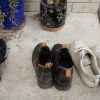 +18 +1
+18 +1Should you wear shoes in the house? The scientific verdict is in
Some of the microorganisms carried inside on shoes are drug-resistant pathogens. Add in the risk of cancer-causing toxins from road residue or endocrine-disrupting lawn chemicals, and you might view the filth on your shoes in a new light.
-
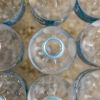 +24 +1
+24 +1Newly discovered enzyme helps reduce plastic waste to a simple molecule
Over the past five years or so we've seen some important breakthroughs demonstrating how enzymes can be used to break down common plastics, such as the PET used for everything from drink bottles to shampoo containers. In pursuit of a circular economy for plastic waste, scientists have now discovered a new enzyme that further breaks down one of the key plastic building blocks left behind by this process, leaving simple molecules that can be repurposed for use in new products.
-
 +3 +1
+3 +1Methane-eating bacteria convert greenhouse gas to fuel
Methanotrophic bacteria consume 30 million metric tons of methane per year and have captivated researchers for their natural ability to convert the potent greenhouse gas into usable fuel. Yet we know very little about how the complex reaction occurs, limiting our ability to use the double benefit to our advantage.
-
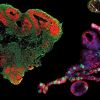 +14 +1
+14 +1Which Immune Cell Are You?
Take this personality quiz to find out which immune cell you’re most like.
-
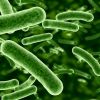 +3 +1
+3 +1Genes point to how some bacteria can gobble up electricity
Bacteria can have superpowers. Some flourish in almost any environment. Others can transform toxic materials into harmless sludge. A bacterium called Shewanella oneidensis can do both. But this microbe also has a much rarer superpower: It absorbs and produces electricity. In fact, new research suggests, these bacteria may be able to use energy collected from wind or solar sources to make fuels to run vehicles and more.
-
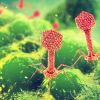 +19 +1
+19 +1We found more than 54,000 viruses in people's poo — and 92% were previously unknown to science
You could say there are a 'crapload' of viruses in the human gut. Luckily, most of these do not attack our cells, but instead feed on bacteria.
-
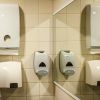 +26 +1
+26 +1We know hand dryers can circulate germs through the air. Why are they still used everywhere?
What side are you on, paper or dryer? In either case, here's the bottom line on what to do after using the toilet.
Submit a link
Start a discussion




















